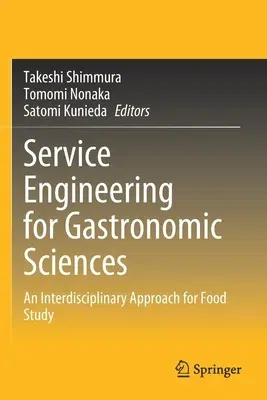This pioneering book on food study pursues an interdisciplinary approach
to service science and the service engineering field. Further, it
highlights a range of experiments conducted at actual business sites to
verify the effectiveness of the proposed methodologies and theories.
In modern society, food study has become more complex, as it involves
multiple fields of science. For instance, a long-lived society entails a
number of problems for human beings. A balanced intake of nutrients is
important for a healthy life, but in many cases, healthy food is not the
most enjoyable. As such, it is important for the food industry to
provide foods that are both tasty and wholesome, based on the sciences
of gastronomy and nutrition.
Conventional food study proceeds along the lines of a specific field
such as nutrition, agriculture, or gastronomy, though it should be
conducted in an interdisciplinary manner. This book covers multifaceted
research on food study to respond to today's societal demands, based
mainly on the natural and social sciences. It addresses a wide range of
topics, including: food production management using mathematical
modeling, operations research, and production engineering; evaluation of
food products based on big data analysis; psychological experiments and
ethnography; food products based on consumer behavior; organoleptic
assessment and health improvement; design of physical dining
environments using virtual reality, pedestrian debt recognition (human
indoor position measuring), and observation of behavior.
Reporting on and assessing many studies conducted at actual business
locations, the book offers a unique and highly practical resource.

